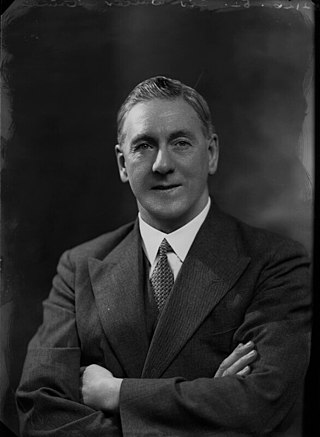Related Research Articles
The Progressive Party of Canada, formally the National Progressive Party, was a federal-level political party in Canada in the 1920s until 1930. It was linked with the provincial United Farmers parties in several provinces, and it spawned the Progressive Party of Saskatchewan, and the Progressive Party of Manitoba, which formed the government of that province. The Progressive Party was part of the farmers' political movement that included federal and provincial Progressive and United Farmers' parties.

The Communist Party of Canada is a federal political party in Canada, founded in 1921 under conditions of illegality. Although it does not currently have any parliamentary representation, the party's candidates have previously been elected to the House of Commons, the Ontario legislature, the Manitoba legislature, and various municipal governments across the country. The party has also made significant contributions to Canada's trade union, labour, and peace movements.
There have been various groups in Canada that have nominated candidates under the label Labour Party or Independent Labour Party, or other variations from the 1870s until the 1960s. These were usually local or provincial groups using the Labour Party or Independent Labour Party name, backed by local labour councils made up of many union locals in a particular city, or individual trade unions. There was an attempt to create a national Canadian Labour Party in the late 1910s and in the 1920s, but these were only partly successful.

The Canadian Labour Congress, or CLC is a national trade union centre, the central labour body in Canada to which most Canadian labour unions are affiliated.

Walter McLennan Citrine, 1st Baron Citrine, was one of the leading British and international trade unionists of the twentieth century and a notable public figure. Yet, apart from his renowned guide to the conduct of meetings, ABC of Chairmanship, he has been little spoken of in the history of the labour movement. More recently, labour historians have begun to re-assess Citrine's role.
A labour council, trades council or industrial council is an association of labour unions or union branches in a given area. Most commonly, they represent unions in a given geographical area, whether at the district, city, region, or provincial or state level. They may also be based on a particular industry rather than geographical area, as for example, in the Maritime Council of Australia which co-ordinated the waterfront and maritime unions involved in the 1890 Australian Maritime Dispute.
The 1927 Manitoba general election was held on 28 June 1927 to elect Members of the Legislative Assembly of the Province of Manitoba, Canada. The result was a second consecutive victory for Manitoba farmers, following its 1922 win.
The 1922 Manitoba general election was held on July 18, 1922 to elect Members of the Legislative Assembly of the Province of Manitoba, Canada. The United Farmers of Manitoba won a narrow majority in the legislature.
The 1910 Manitoba general election was held on July 11, 1910 to elect members of the Legislative Assembly of the Province of Manitoba, Canada.
The Trades and Labor Congress of Canada was a Canada-wide central federation of trade unions from 1886 to 1956. It was founded at the initiative of the Toronto Trades and Labour Council and the Knights of Labor. It was the third attempt at a national labour federation to be formed in Canada: it succeeded the Canadian Labour Union which existed from 1873 to 1877 and the Canadian Labour Congress which held only one conference in 1881.

The Workers' Unity League (WUL) was established in January 1930 as a militant industrial union labour central closely related to the Communist Party of Canada on the instructions of the Communist International.
The Canadian Congress of Labour (CCL) was a trade union federation in Canada. Affiliated with the United States-based Congress of Industrial Organizations (CIO). It was founded in 1940 and merged with Trades and Labour Congress of Canada (TLC) to form the Canadian Labour Congress (CLC) in 1956.

The One Big Union (OBU) was a Canadian syndicalist trade union active primarily in the western part of the country. It was initiated formally in Calgary on June 4, 1919, but lost most of its members by 1922. It finally merged into the Canadian Labour Congress in 1956.
Edward (Ed) Finn Jr. was a Canadian trade unionist and journalist, editor, author and former Newfoundland politician. He was the leader of the Newfoundland Democratic Party and the first leader of the Newfoundland New Democratic Party.
The Central Labour College, also known as The Labour College, was a British higher education institution supported by trade unions. It functioned from 1909 to 1929. It was established on the basis of independent working class education.
The Mine Workers' Union of Canada was a trade union in the mining sector in Canada. MWUC was affiliated to the Workers' Unity League, and lasted for approximately a decade.
This page lists the results of leadership elections held by the Alberta Liberal Party. Delegated conventions were held until 1988. Elections held since 1994 have been on a One member, one vote basis.
The South African Trades Union Congress (TUC) was a national trade union federation in South Africa.
The National Amalgamated Union of Life Assurance Workers (NAULAW) was a trade union representing insurance workers in the United Kingdom and Ireland.